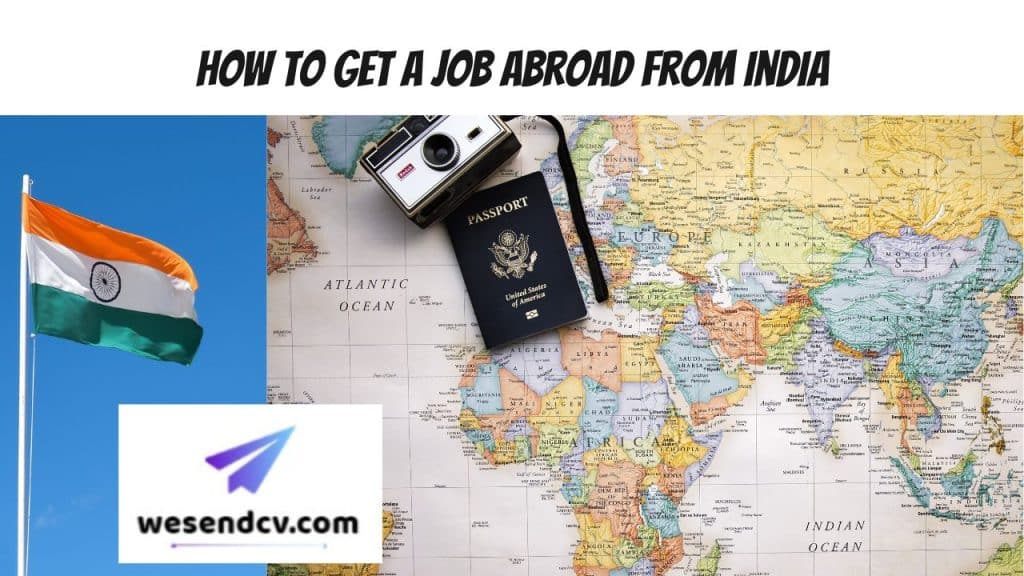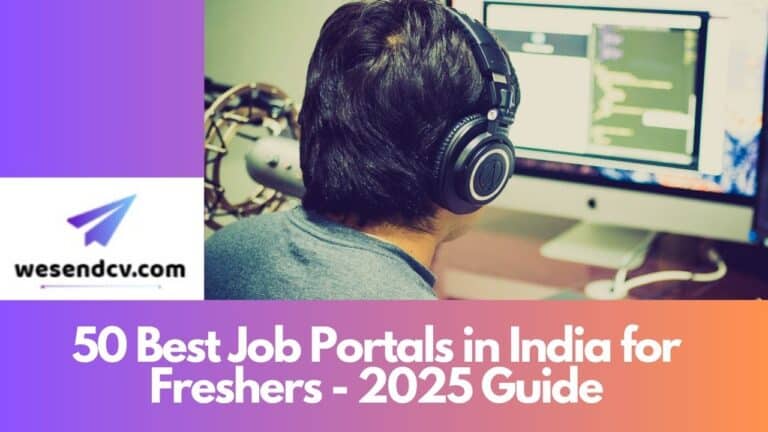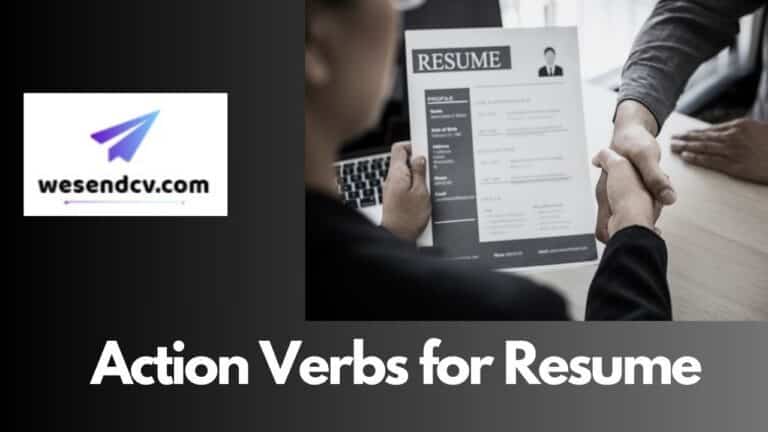Working abroad is a dream for many Indian professionals. With the promise of higher salaries, new career opportunities, and cultural experiences, securing a job in a foreign country offers many advantages. However, the process of getting a job abroad from India can be challenging. It requires careful planning, understanding of the global job market, preparation of documents, and awareness of visa regulations.
In this guide, we will explore the steps involved in getting a job abroad, highlight key tools, and provide tips on avoiding common pitfalls. Whether you’re looking for opportunities in Europe, the Middle East, or North America, this guide will set you on the right path to working overseas.
Main Highlights of Content
Toggle1. Research the Job Market in Your Desired Country
The first step in getting a job abroad is researching the countries where your skills are in demand. Different countries have varying needs for professionals in sectors such as IT, healthcare, engineering, and education.
Key Job Markets for Indian Professionals
- Europe: Countries like Germany, Sweden, and the UK are known for hiring Indian IT professionals, engineers, and healthcare workers.
- Middle East: Gulf countries like the UAE, Qatar, and Saudi Arabia frequently hire Indian professionals in construction, healthcare, and finance.
- North America: The US and Canada are popular destinations for tech professionals, engineers, healthcare professionals, and business experts.
Visa and Work Permit Requirements
Each country has its own visa and work permit regulations. For example, the US offers the H-1B visa for skilled workers, while Europe has the EU Blue Card for professionals. Researching visa requirements early in the process will ensure that you apply to countries where you qualify for a work visa.

2. Tailor Your Resume for International Standards
Once you have chosen your target countries, you need to prepare a resume that aligns with international standards. International resumes are often different from those used in India, so it’s important to make adjustments to stand out in a global job market.
Optimize for Applicant Tracking Systems (ATS)
Most companies abroad use ATS to filter resumes before a human even sees them. To ensure your resume passes through this filter, make sure:
- Use Keywords from Job Descriptions: Tailor your resume for each job application by including keywords from the job description.
- Keep the Format Simple: Stick to clear, readable fonts, and avoid using graphics or images that could confuse ATS systems.
Highlight Your International Experience
If you have worked with global teams or have experience in cross-border projects, make sure to showcase this on your resume. Employers value candidates with international exposure.
For more tips and to optimize your resume for international jobs, use the Free Resume Tools to improve your resume structure and content.
3. Leverage Online Job Portals and Recruitment Agencies
Finding job opportunities abroad requires using the right platforms. There are numerous global job portals and recruitment agencies that specialize in connecting Indian professionals with employers abroad.
Top Job Search Platforms
- LinkedIn: This professional network is invaluable for job searches. You can filter jobs by location and industry, making it easier to find international positions.
- Indeed: A popular platform that allows you to search for jobs worldwide.
- Glassdoor: Offers job listings, as well as company reviews and salary insights, which can be helpful for researching potential employers.
Use Recruitment Agencies
Many international recruitment agencies specialize in placing Indian professionals in global jobs. These agencies often have access to jobs that are not listed on public job boards. They can also guide you through the process of applying for visas and work permits.
For keeping track of your job applications and recruitment process, you can use a Job Application Tracker to stay organized.
4. Prepare for International Job Interviews
Once you have applied for jobs, you need to prepare for interviews. Interviews for international jobs are often conducted virtually, especially in the early stages. However, there are differences in interview styles based on the country you are applying to.
Master Virtual Interviewing Skills
Since most initial interviews will be conducted remotely, you need to make sure that your virtual interview setup is professional:
- Ensure Good Audio and Video Quality: Invest in a good microphone and camera.
- Choose a Quiet, Well-Lit Background: Ensure your background is distraction-free.
- Dress Professionally: Even if the interview is virtual, dressing professionally shows respect and seriousness.
Understand Cultural Differences
Different countries have different approaches to job interviews. For example:
- In the US: Interviews tend to be more conversational and informal.
- In Europe: The interview process may be more structured and formal.
- In the Middle East: Interviews often focus on building personal rapport in addition to assessing qualifications.
5. Use Google Search Operators for Advanced Job Searches
Finding the right job opportunities can be easier if you know how to use Google Search operators effectively. These operators help you narrow down your search to specific job listings, making the search process faster and more efficient.
Examples of Google Search Operators
- Use Quotation Marks for Exact Matches: Searching for
"software developer jobs in Germany"will return listings that exactly match this phrase. - Exclude Irrelevant Results: Use the minus sign to exclude specific terms, e.g.,
"marketing jobs in Canada -internship". - Search Specific Sites: Use
site:linkedin.com "data analyst jobs in Dubai"to find job listings on a specific website.
To streamline your search, you can use the Google Search Operator Generator to create tailored search queries.
6. Track Job Application Deadlines
When applying for jobs abroad, it’s important to stay on top of deadlines. Employers may have strict deadlines for submitting applications, and missing them could cost you the opportunity.
Use a Deadline Tracker
You can use a Job Application Deadline Tracker to keep track of the various job applications you’ve submitted and their respective deadlines. This will help you stay organized and ensure you don’t miss important dates.
Set Reminders for Follow-Ups
After submitting an application or attending an interview, following up can make a big difference. Set reminders to send follow-up emails and check the status of your applications.
7. Networking and Building Professional Relationships
Networking plays a crucial role in finding a job abroad. Many job opportunities are filled through referrals and professional connections, so building a strong network can increase your chances of securing a job overseas.
Leverage LinkedIn for Networking
Use LinkedIn to connect with professionals working in your target industry and country. Engage with their posts, share valuable insights, and join groups related to your industry. Establishing connections with people who work in companies you’re interested in can increase your chances of getting a referral.
Attend International Virtual Job Fairs and Webinars
Many industries now host virtual job fairs and webinars that cater to professionals looking for international roles. These events provide you with the opportunity to network with global employers and gain insights into what they are looking for in candidates.
8. Understanding the Visa Process
Once you receive a job offer, the next step is to secure a work visa. Each country has different visa requirements, and it’s essential to understand the process early on.
Common Work Visas for Indian Professionals
- US: The H-1B visa is for skilled professionals in sectors such as IT, engineering, and healthcare.
- Canada: The Express Entry system offers Permanent Residence to skilled workers through the Federal Skilled Worker Program.
- Europe: The EU Blue Card allows highly skilled workers to work in many EU countries.
- Middle East: Countries like the UAE and Saudi Arabia offer employer-sponsored work visas.
Visa Sponsorship by Employers
In most cases, your employer will need to sponsor your work visa. It’s important to clarify this during the interview process to ensure that your employer is willing to help with the visa application.
9. Budgeting and Financial Planning
Relocating to another country involves a range of expenses, including visa fees, moving costs, and accommodation. It’s essential to plan your finances carefully before making the move.
Estimate Your Moving and Living Costs
Research the cost of living in your destination country. While some countries, like the Middle East, offer tax-free salaries, others, like the US and Europe, may have higher taxes and living costs.
Maintain Financial Stability in India
Ensure that your financial obligations in India are taken care of, including managing bank accounts, paying off loans, and filing taxes. Consult with a financial planner to handle both your Indian and foreign financial commitments effectively.
Conclusion
Securing a job abroad from India requires strategic planning, research, and preparation. By following the steps outlined in this guide—researching job markets, tailoring your resume, using job search tools, preparing for interviews, and understanding the visa process—you can successfully land a job in your dream destination.
To get started, be sure to use helpful resources like Free Resume Tools to craft an international-ready resume, Job Application Tracker to stay organized, and the Google Search Operator Generator to optimize your job search. With the right approach, your dream of working abroad can soon become a reality.







